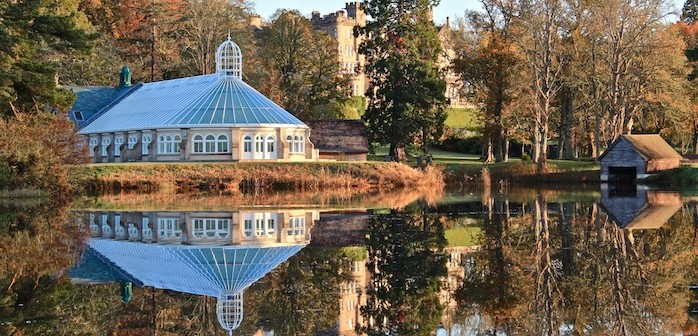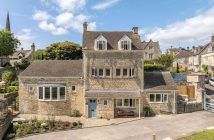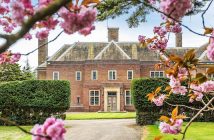In the second part of his stay at Skibo, Larry learns a little more of the castle’s history and takes a dip into some of the club’s enviable facilities…
My eyes crashed open the next morning to the most frightful sound; someone had set off a klaxon in my room. The alarm, oddly, became tuneful and I realised it was the first wheezing notes of a piper drifting into my window. Skibo’s reveille. The music morphed from Scottish musical heraldry to a sort of Bach ensemble as I descended the stairs to breakfast and to a beautiful buffet laid out in the main hall. Treacher was on the keyboard once more, only this time it was the pipe organ. I have never had breakfast to pipe organ and I would thoroughly recommend it.
By now thoroughly embracing the communal spirit, I entered the Morning Room. Expecting some faces from last night, there were new ones – not everyone chooses to dine as a group, evidently – and I asked to join a couple by the window, but was not prepared for what came next.
“So you’re writing a history of Skibo castle?” they asked. I nearly choked on my muesli. I was as surprised as they were to learn this but I daren’t blow my cover so I botched a potted anthology sketched together from what Peter had told me the day before and bolted down my eggs and bacon, making my excuses for tardiness to get to the stables. I was going horse riding.
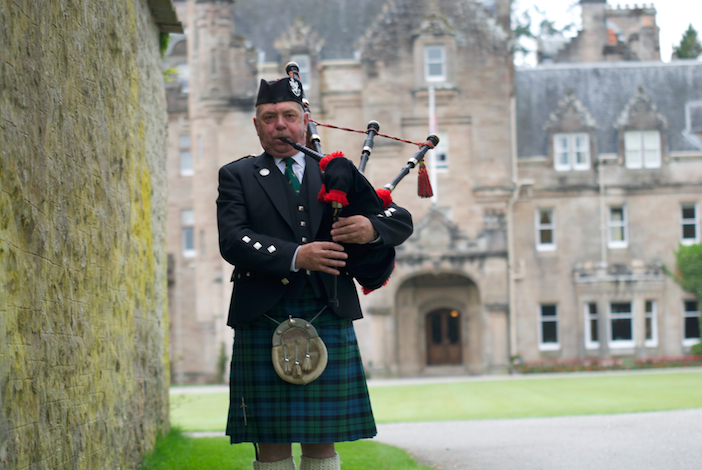
Any ill effects of the night before were soon diminished as I took in my setting. Golf buggies may cart you from castle to clubhouse, with beautiful views across the loch, but the estate – and the scale of it – is best seen on the back of a horse. A short trek, away from the estate buildings and out through deciduous woodland, opened up to give us a view across the fields and meadows, the last of the morning mist diffusing in the warming sun, and acres of deep green pine forest. All this tucked behind the most discreet entrance; a remotely-operated gate down an inconspicuous lane from a quiet road in a tiny village off an un-signposted exit off the A9. C S Lewis couldn’t have come up with this.
But what of the history of Skibo? You may be surprised to learn that the castle that stands there is not the bequeathment of some ancient medieval fortification, rather it was built in the 19th century by the billionaire industrialist Andrew Carnegie – the man whose steel built half of America.
In spite of its 20th century origins, however, the site is not without its heritage and significant settlement does, in fact, date back to the Vikings. The name, too, harks back to this time; ‘bo’ being Norse for homestead. That stained glass window I mentioned in the main hall, of Carnegie’s commission, gives a potted pictorial history; beginning with Sigurd, the first settler, around 875AD. The first castle was built on that Viking stronghold in the 12th century as the church began to take hold under the bishopric of St Gilbert. 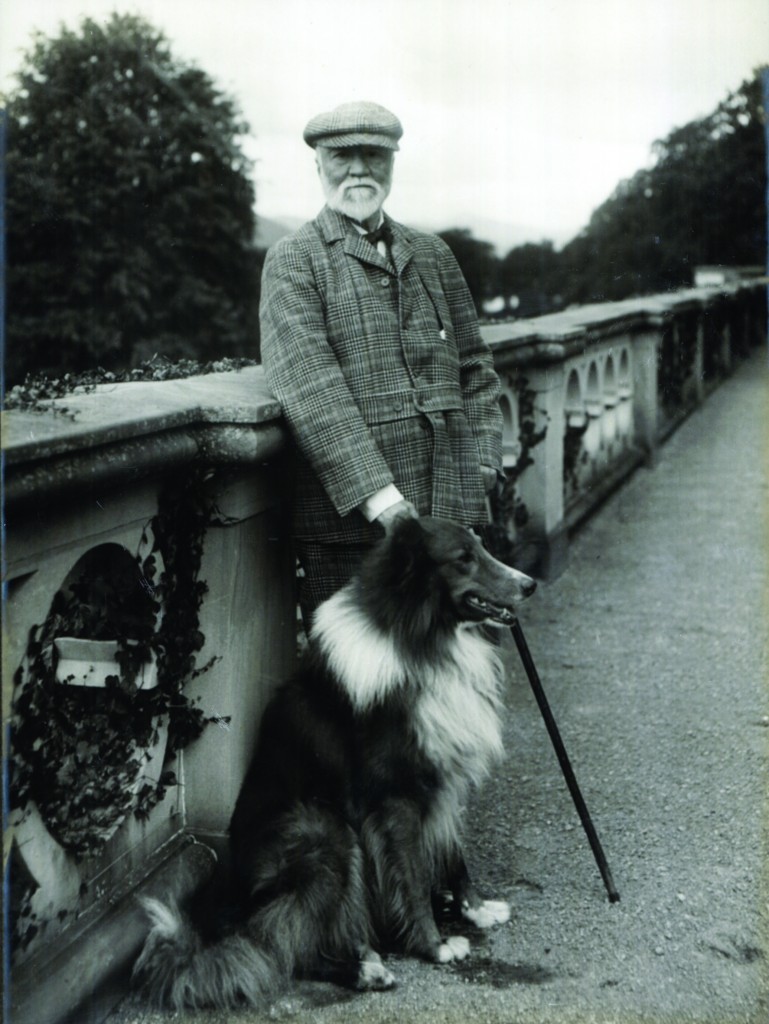 Thereafter, reformation and civil war have all made their mark – another figure in the window is the Marquis of Montrose, a royalist whose honour was defended with an assault by a leg of lamb at the close of the civil war. Further stories abound about Skibo’s past, many researched by Carnegie himself, who took a keen interest in the history of his new home – the country from which he left as a young emigrant, and returned to in retirement, naming guest rooms after the significant personalities that have shaped the castle’s history.
Thereafter, reformation and civil war have all made their mark – another figure in the window is the Marquis of Montrose, a royalist whose honour was defended with an assault by a leg of lamb at the close of the civil war. Further stories abound about Skibo’s past, many researched by Carnegie himself, who took a keen interest in the history of his new home – the country from which he left as a young emigrant, and returned to in retirement, naming guest rooms after the significant personalities that have shaped the castle’s history.
With such a colourful backdrop any disappointment I might not be staying in a centuries-old castle was soon dispelled, particularly as I began to understand the principles behind the man whose name the eponymous club has adopted. The location, for one, met all his stringent selection criteria; a view of the sea, anchorage for their yacht, a trout river and a waterfall. It’s a setting appreciated not just on the back of a horse but from the family villas, built conspicuously in the grounds or renovated from original outbuildings – the ‘dairy’, for example, has turned the tile-lined walls of the original milking pens into an exceptional living room. The club bears the Carnegie name not, simply, in honour of its former owner but perhaps more significantly as a homage to his renowned hospitality and generosity of spirit and it’s an endearing tradition that he is toasted at the beginning of each hosted dinner, such is his enduring legacy.
Carnegie’s legacy, too, continues in the amenities offered by the club; the links golf course, the centrepiece of the estate, is tantalisingly unavailable to the casual player. Member privileges make it theirs and such is its lure that the club attracts noted guest players – Sandy Lyle and Jack Nicklaus were in attendance during my stay – and others, such as Paul Lawrie, are often invited to offer a ‘clinic’ to players that feature tuition, talks and the customary social events the club is known for.
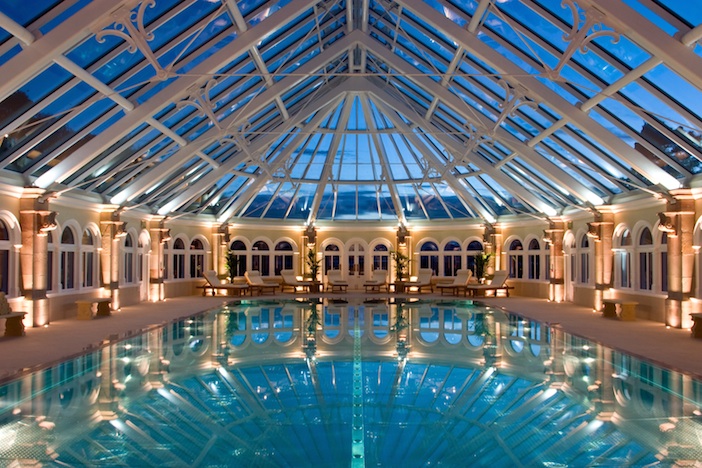
Golf not being my thing, I nevertheless managed half a round with the pro who, in the manner of Colin before him, improved my game immeasurably. Only three balls made it into the sea. But my nirvana came in the pool house. I am a swimmer, never more comfortable in – or in sight of – water. My glimpse of the pool house en route to the shooting range the day before already had me but it was inside that I think I’d found my second home. Following a £4million refurbishment two years ago, the original iron frame and adjustable roof – like a giant greenhouse – had been restored, the pool replaced with one in polished steel. I’d not seen, nor swum in, anything like it. And that was before I’d been in the spa. Between the horse riding, the golf and the sore shoulder from my success on the shooting range, the massage that I enjoyed in their spa easily outdid any in the world’s finest hotels. Hang on…a spa? At a private members’ club? You’d better believe it.
When I returned from my visit, that rare thing occurred; Mrs L picked me up from the airport. Asking how it was, I replied with my three defining criteria by which I judge the best hotels; the zen of the room, the swimming pool, and the breakfast. The first can’t be acquired, it just is. And Skibo has it in spades. The second needs to be more than a token offering and, again, Skibo’s is one of the finest I’ve been privileged to swim in; it’s not just that it’s a lap pool but the setting is sublime. As for the third, the food notwithstanding, the impeccable service a given…anyway, I went on – as I have in this article – halfway down the M4.
“Was there anything you didn’t like about it?” she asked.
“Yep. One thing.” I replied.
“What’s that?”
“It’s not a hotel. Which means I can’t just go back.”
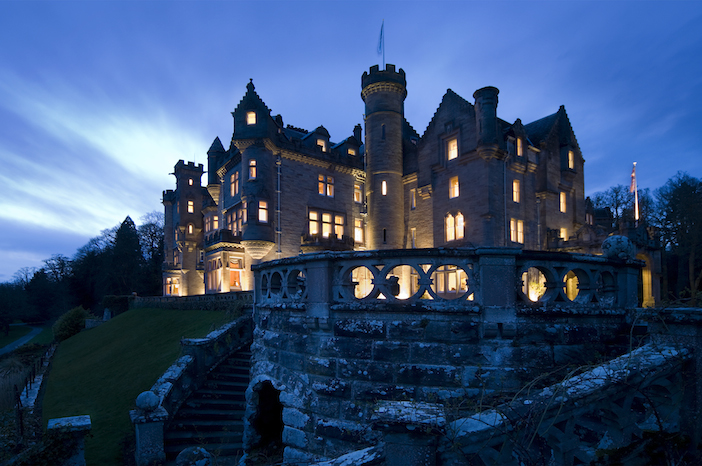
But for all its offerings, there’s more to Skibo – and the Carnegie Club – than its facilities, its amenities, more even than its setting. Many clubs suggest that sense of belonging but it feels more like a veneer, a pat on the back or a token handshake. Skibo’s essence is different; carved of its legacy, embodied in its spirit. As Alan addressed the assembled company at dinner that first night, he described how it gets into your soul and never leaves you. He wasn’t wrong.
Now I just need a ruse to return…I wonder if they need a history written?
The Carnegie Club at Skibo Castle is an international, private, residential club and membership is by invitation only. All applications are placed before the Membership Committee for approval.
Present joining fee is £24,000 (inclusive of VAT) with annual dues of £8,000 (inclusive of VAT). Those applying for membership may opt for a trial year (subject to approval by Committee) before fully committing to long-term membership. Prospective members may visit the club once, allowing them to experience the club at first hand before applying for membership.
The club is child-friendly and offers children’s dining arrangements, activity programmes and babysitting services.
For more information, including further details of facilities, membership privileges and information on the trial membership, visit the website, email membership@carnegieclub.co.uk or call +44 (0)1862 894 600.

